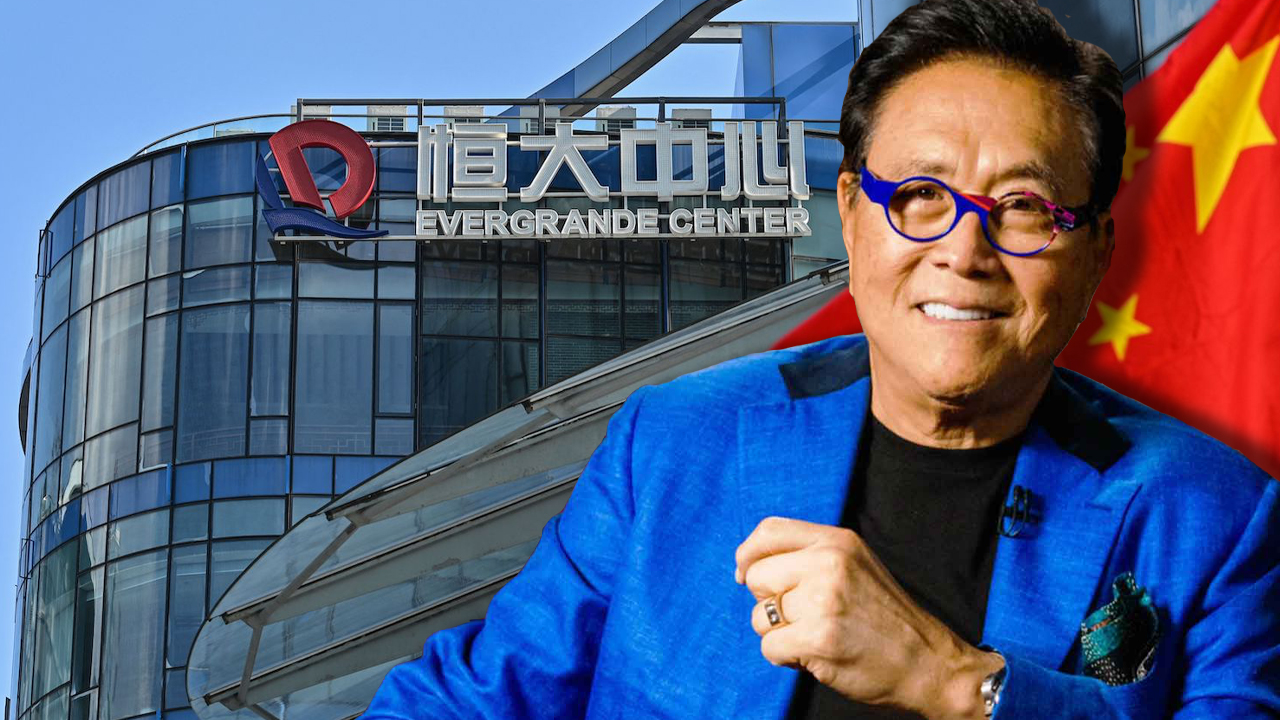
The world is still focused on the financial downfall of China’s real estate giant Evergrande and according to Chinese authorities have told the private sector to get “ready for the possible storm.” Reports show that even though the People’s Bank of China already provided $18.6 billion in liquidity to ease the brunt, Beijing may not be so willing to bail the company out.
Chinese Authorities Warn of a ‘Possible Storm,’ PBOC Injects $18.6 Billion Into China’s Markets
Financial markets could still be in for an unruly storm if Evergrande defaults and it causes a credit contagion. According to the Wall Street Journal (WSJ) on Thursday, senior officials from China have told local authorities to prepare for the property developer Evergrande’s demise.
Evergrande amassed a mountain of debt and since the fallout on September 20, the giant corporation has been shaking right down to its foundations. Evergrande was able to clear Wednesday’s debts that were due, however, it’s unknown whether or not Evergrande can fulfill Thursday’s offshore bond debts.
One reason the company made it this far since Evergrande’s downward slide on September 20, is the fact that the central bank injected $18.6 billion into the economy to bolster liquidity. The People’s Bank of China (PBOC) leveraged reverse repurchase agreements for the process.
Market sentiment improved after the injection but the WSJ report notes the central bank may not continue to ease the situation. Eugene Leow, a senior rates strategist at DBS Bank Ltd. in Singapore explained that the injection was meant to bolster sentiment. Leow stressed:
The PBOC’s net injection is probably aimed at soothing nerves as the market worries about Evergrande. While the aim may be to instill discipline, there is also a need to prevent contagion into the real economy or to other sectors.
Robert Kiyosaki: ‘China’s Evergrande Group Cannot Pay’
Estimates show that Evergrande has sold millions of properties to China’s middle class after the billionaire Xu Jiayin created the firm in 1996. Records further show during that time, the real estate giant’s debt grew to more than $300 billion.
Evergrande’s sales have collapsed in recent times and construction workers have stopped working over payment delays. There’s a fear that if Evergrande fails a number of properties will also falter. Reports further show that Evergrande has failed to make payment for the land site in China’s Anqing City of Anhui Province.
The author of “Rich Dad Poor Dad,” Robert Kiyosaki, called the Evergrande situation a “house of cards.”
“HOUSE of CARDs coming down,” Kiyosaki said this week. “Real estate crashing with [the] stock market. China’s Evergrande Group cannot pay. Valuation of properties [is] fake. Will [the] real estate crash spread to [the] U.S.? Yes. Great stock and real estate opportunities coming for smart investors. Disaster for foolish investors,” he added.
What do you think about Chinese authorities telling local officials to prepare for a storm? What do you think about Robert Kiyosaki’s sentiment of the situation? Let us know what you think about this subject in the comments section below.
Image Credits: Shutterstock, Pixabay, Wiki Commons
Disclaimer: This article is for informational purposes only. It is not a direct offer or solicitation of an offer to buy or sell, or a recommendation or endorsement of any products, services, or companies. Bitcoin.com does not provide investment, tax, legal, or accounting advice. Neither the company nor the author is responsible, directly or indirectly, for any damage or loss caused or alleged to be caused by or in connection with the use of or reliance on any content, goods or services mentioned in this article.